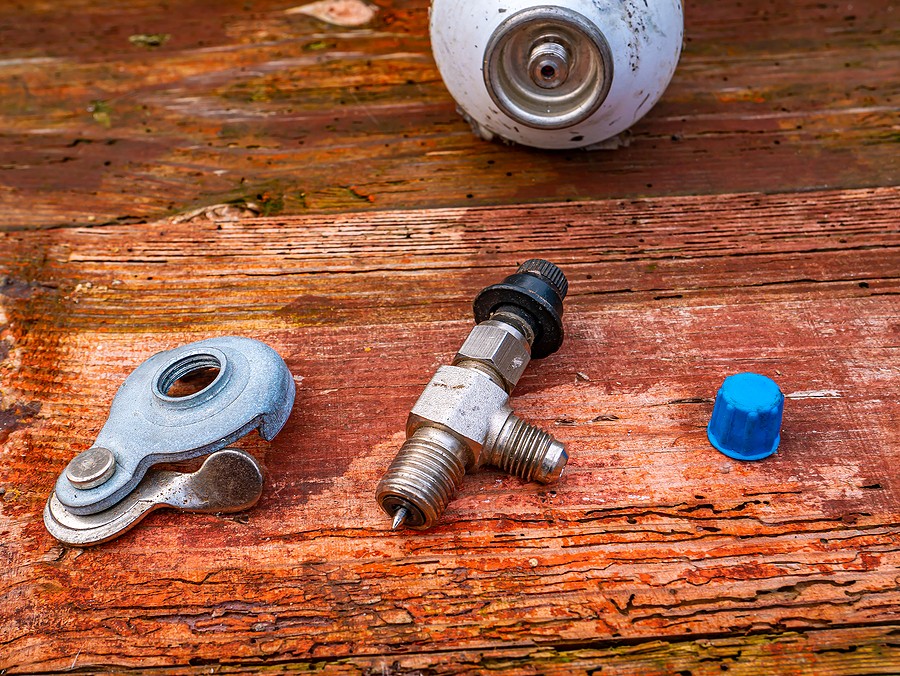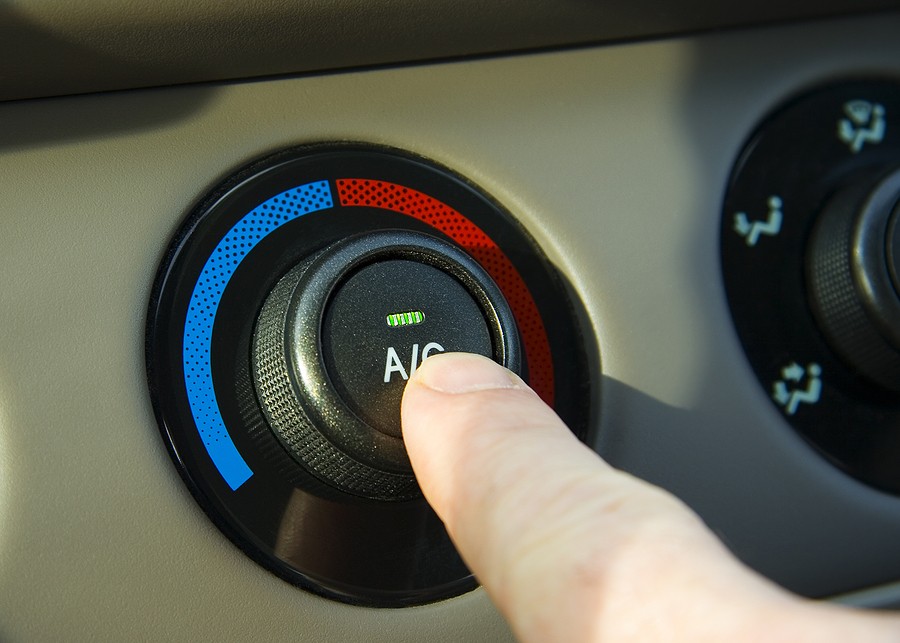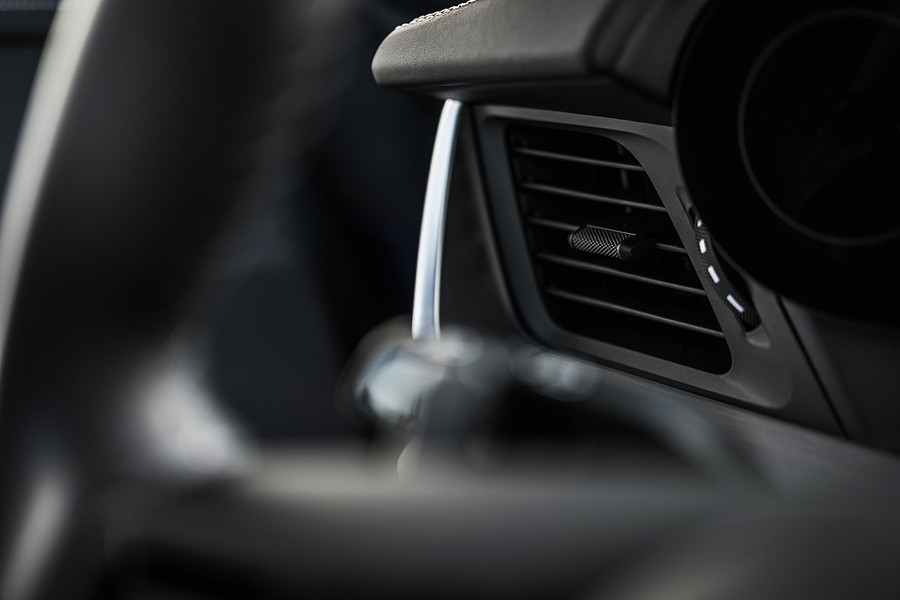If you're wondering “how to know if my car AC needs freon,” below are the common symptoms:
- Reduce cooling efficiency
- Longer cooling times
- Warm air blowing
- AC cycling frequently
- Unusual sounds
Your vehicle AC system is a core system that you might rely on, especially as the summer season gets closer. Without a perfectly working AC system, your driving experience can sometimes be very uncomfortable and stressful.
It is crucial to monitor components within your system, and one of the most critical ones is to ensure that your vehicle does not need a rant or what's known as freon.
This article through details that could help answer the question, “How do I know if my car AC needs freon?” Highlight some symptoms, provide inspection ideas, and suggest what must be done to prevent low refrigerant levels.
What is the freon, and when is it needed in your car?
Before we dive into the details about “how to know if my car AC needs freon,” it is important for you as a car owner to understand what the fire is in the first place and what is used in the AC system.
The freon was not ours. The refrigerant is sometimes the lifeblood of your car system.it is accessible for running around the system and absorbing the excess heat from the cabin to cool down your car and release this excess heat outside your vehicle.
Without enough freon or refrigerant, your car will not cool down, and your driving experience can be very uncomfortable, especially if you're approaching the scorching summer days. Therefore, you must monitor the freon level and understand when your vehicle is of a freon refill.

How do I know if my car AC needs freon?
As you might notice, the freon is a critical component within your AC system, and if it's not filled properly, your Asia system will not work proficiently. You'll notice some differences in how your vehicle behaves and how the AC is efficient in cooling down your car.
While your vehicle owner's manual should have details about how often you should check on the freon and how much your vehicle should have, sometimes you might experience situations where you have to refill the freon.
The following list summarizes the five most common symptoms indicating that your car needs an AC freon as possible, calling
1. Reduce cooling efficiency
The first and easiest thing you'll realize immediately when your car does not have freon is that the AC system is not producing the efficient and enough cooling you expect.
For example, you've probably turned on that system and waited for some time but realized that all that's coming is warm air. In that case, it's not only about the hot summer season; it also might be issued with limited refrigerant that needs to be refilled.
Note that reduced cooling efficiency can be related to many problems within your cooling system and sometimes within other systems. It could even be a problem that it's very hot outside in your car and cannot keep up with this very hot temperature.
That's why your mechanic needs to perform a more detailed inspection to confirm what's going on in this vehicle, and once he determines that it's simply a freon refill, he can do that immediately.

2. Longer cooling times
In some instances, if your car does not have enough freon, you'll notice that it will take much longer to cool down.in other words, you have a cool-down vehicle, but it will take forever until it's done, and that might be very uncomfortable for you if you're planning to drive long trips.
If that's the case, it might be that your freon is getting lower, but it's not too bad. That's why you don't want to get to the point where your system does not have the right capacity to cool down your car, and in that case, by filling the freon as fast as possible, you won't get the situation where your AC system doesn't work.
3. Warm air blowing
If you ignore the low freon problem for a longer time, you will realize that your assistance produces warm air. In that case, the main lifeblood component within this system is insufficient; ancient; re, you'll never get a cool-down vehicle.
While this might not be a significant problem for those driving during the winter season, it can be critical if you're planning to use your car to drive during the scorching summer. Therefore, before dealing with this situation, have your mechanic take a look and refill the freon if needed.

4. AC cycling frequently
Have you ever experienced situations where your system keeps turning on and off? That could be an issue with some of the major components within the system, like the compressor, but it could also mean there is insufficient freon.
Therefore, as you start to experience these, check with your mechanic and have him inspect the core components and then determine if it's just a need for a free refill to resolve the issue. The more you wait for the problem to come, the more things get more complicated, and the more you'll experience some impacts on the vehicle's overall performance, like the engine performance.

5. Unusual sounds
Finally, many car owners indicated that when there is low freon, they just realized that the car is making some unusual high-pitched whistling sounds. That could be related to the bad compressor, but it could also mean that the freon is not good enough or it's not at the right capacity.
Therefore, whenever you notice any noise coming from your car, regardless of where it's coming from, you should take it seriously because it's just a way for your car to communicate with you and bring your attention to internal car problems.

DIY inspection steps
If you notice that your system is not working properly, it could be the perfect timing for you to start making some effort to check if you could narrow down the potential list of culprits that could save your mechanic time to fix it.
The following step-by-step should help you perform some inspections to determine whether your car needs additional freon or not:
1. Perform a visual inspection
2. Check the temperature
3. Monitor for any weird noises
4. Assess the airflow
Remember that not every car owner can identify the root culprit causing the AC to blow warm air. Therefore, if you could identify some of the common symptoms and detect any of them, you could share this information with your mechanic and have him focus his efforts on what matters and what your vehicle is suffering from.

How to prevent low refrigerant?
Since the refrigerant is a core elements within your AC system, it is critical that you keep up with it and never deal with situations where it's leaking or it's reduced below the minimum level. Therefore, following this provides you with recommendations by automotive experts that could help you prevent situations where you have low refrigerant or freon:
- Keep up with regular meanings and follow the recommendations on your vehicle owner's manual
- Consider frequent checks and have your mechanic inspect the Acer systems not if it's not working properly
- Ensure that your system is cleaned of debris or contaminants
- Never ignore minor sentences that could indicate major problems in the future
- Run your AC regularly and do not keep it turned off completely because this might impact its future performance
- Monitor for any visible refrigerant leaks and monitor for any weird noises coming from the system because that could be an indication that you need to check on the car as soon as possible

.How do I know if my car AC needs freon? Final Thoughts
The freon, or what's known as the refrigerant, is a core fluid in your car's AC system, and without it, your car is not going to be cooled down. Therefore, it's critical for you as a car owner to monitor this fluid and never ignore problems indicating low refrigerant levels.
This article walks you through five important symptoms that could help me answer, “How to turn off my car AC needs freon?”
If you notice any of these symptoms, have your mechanic refill the freon and address any potential leaks if that's an issue. The more you wait for the problem, the more things get out of hand and the more repair costs you'll have to pay.
For similar articles, visit our blog by clicking here.



